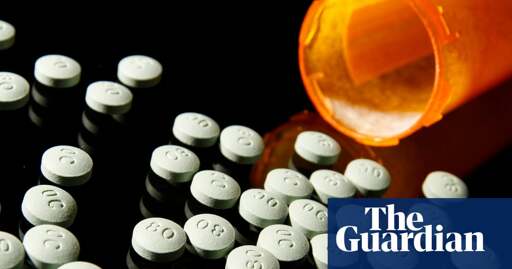A federal bankruptcy court judge on Friday said he would approve OxyContin-maker Purdue Pharma’s latest deal to settle thousands of lawsuits over the toll of opioids that includes some money for thousands of victims of the epidemic.
The deal overseen by US bankruptcy judge Sean Lane would require some of the multibillionaire members of the semi-reclusive Sackler family who own the company to contribute up to $7bn and give up ownership of the Connecticut-based firm.
The new agreement replaces one the US supreme court rejected last year, finding it would have improperly protected members of the family against future lawsuits. The judge said he would explain his decision in a hearing on Tuesday.



In the current timeline I can’t believe Richard Sackler isn’t head of the FDA.
It’ll happen after the Trump pardon
I am equally as surprised El Chapo isn’t head of the DEA.
All drugs should be legal and regulated
All drugs? I think probably some of the most popular/safest from each class should be.
But there are some drugs that have no business on the market in my opinion.
Should Carfentanil be legal? Should Bromo-DragonFLY be legal? What about Alpha-Pyrrolidinovalerophenone? How about Clonzolam (not to be confused with clonazepam)?
To use this court case as an example, the issue wasn’t that the drugs were addictive. The issue was that the company lied through their teeth about it. The company already knew from the medical studies that the drugs were horribly addictive, but decided to lie to doctors and tell them that the drugs were perfectly safe. They had massive advertising campaigns aimed at doctors, to get them to prescribe increasingly high dosages, and to write prescriptions for much longer periods of time. The company actively worked against any kind of safety nets or support to help people come off of the addictive drugs, in order to keep a lid on the addictive properties as long as possible. Because the company wanted to sell more drugs, and the executives realized that getting people hooked would sell more in the long term.
That doesn’t mean the drugs should be illegal. Criminalizing the drugs only pushes them underground, where addicts will be left without any kind of support or safety nets. Instead, they should be available in controlled environments, with drugs that were manufactured in regulated lab settings to ensure purity/avoid lacing. They should be administered by staff who are knowledgeable about the full suite of potential side effects, overdose symptoms, and withdrawal effects. Staff who can monitor the addicts and ensure they don’t overdose, while also being able to provide resources, support, or even alternative medications (to control the withdrawal effects) for those who are looking to quit.
The drugs you mentioned are actually a great example, because very few people started with those. Those aren’t something that the first-time user sought out. They likely got a laced batch of something else, (because the drugs are illegal, the production is not done in controlled lab settings with guaranteed purity), which fucked them up hard.
I see where you are going with your comment… But the short answer to your question is yes. This is because making addiction illegal doesn’t solve the underlying issues. It just drives addicts through the criminal system instead of the medical one. A person going through addiction should have safe and controlled places to use along with a firm pipeline of helpful services to help kick those habits and get back on their feet.
That said, the drugs you are referring to are horrible. But I highly doubt a person deliberately sought them out when their journey through addiction began. Likely they got those mixed in with their original habit and down the rabbit hole they went. Keeping substances and their use illegal will just keep the underground drug trades thriving for the users that still need their fix.
I think we are in agreement sort of. In my opinion if you legalize enough from each class no one would want those drugs legal. There are better opioids, better hallucinogens, better stimulants and better benzodiazepines.
If morphine, fentanyl, oxycodone, etc is legal why would anyone want Carfentanil? What other purpose would it have other than as a weapon? The same goes for the rest of each class except I would substitute weapon for poison due to the varying types of toxicity.
It was never really a super big problem, but notice how all those sketchy synthetic cannabinoids basically disappeared after states legalized weed and McConnel passed the farmbill?
You don’t need to make it illegal at possession or even point of sale. You can make manufacturing of some of these incredibly toxic substances illegal and it would be much easier to stay on top of them if they weren’t warring against literally every psychoactive drug.